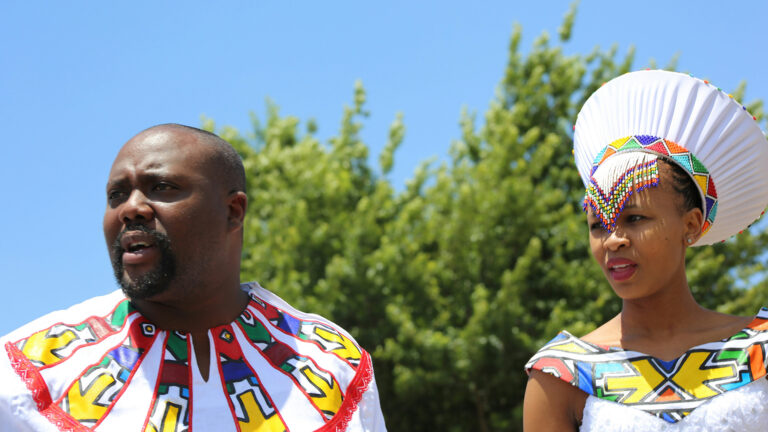By definition, war is “a state of armed conflict between different countries or different groups within a country.” Conflict is a synonym for war. So I will be using the two terms interchangeably. But this article isn’t only about the conflict in Ukraine. My main purpose is to encourage those affected by war. The people of Ukraine—especially those trusting in God—are on my mind. They’re in my prayers. As a South Sudanese, most of my life has been lived in war. I know what the people of Ukraine are going through. Thus I hope that my own experiences can encourage the devastated people of Ukraine.
As a South Sudanese, most of my life has been lived in war.
On the one hand, conflict shouldn’t be surprising. For in addition to humanity’s long history of wars, as well as very recent conflicts, Jesus said they’ll be with us until he returns (Matthew 24:6). Yet none of that meant Russia’s invasion of the Ukraine wasn’t profoundly shocking. The scenes coming to us through our screens, starting on the 24th of February, were incredible. Since then over 5 million Ukrainians have become refugees, making it Europe’s largest refugee crisis since World War 2.
War Forever Changed My Life
I lived most of my life in war in Sudan. It is one of the longest running civil wars in Africa (from 1983 to 2005). I faced countless trying moments. I was separated from my mother, siblings, and other relatives. I struggled to sit in class, hearing rumours of war every day. The culture of war and violence invaded daily life. The focus was not on education or economy but war. This made the country’s growth slow, as the war caused famine and disease. In the end, over 2 million people died. So I didn’t only live through pain and hopelessness, but also look back on the terrible loss.
I didn’t only live through pain and hopelessness, but also look back on the terrible loss.
It is easy to start a war, but it is extremely difficult to stop it. War may stop physically but its aftermath continues for decades. Hitherto, the aftermath of Sudan’s civil war and its effect on the people has not disappeared. Sadly, what Ukraine is going through now will affect them for decades to come. Even if the war ended tomorrow. However, this is not the end. There is still hope, despite the horrendous loss and long term consequences.
The Conflict In Ukraine Will Cause Untold Damage
Before exploring the hope for those living in Ukraine, and others affected by the war, we must consider the inevitable costs. The civil war in my own country cost the Sudanese in innumerable ways, from the loss of lives to the dilapidation of basic infrastructure. It is easy to start war but it takes a very long time to end it. When wars end, their effects are felt for decades.
As someone who’s gone through major conflict and come out the other end, I can share some of the most severe costs of war.
Disunity and Division
War both causes hatred and fuels existing animosities. The southern Sudanese and northern Sudanese hated and viewed each other as enemies. War exacerbated the situation and the result was a violently divided nation.
Ruin follows war.
Disunity is one of the worst things that can happen among the people. Nations or people groups cut support. They grow suspicious of others. As Jesus said, “Every kingdom divided against itself will be ruined” (Matthew 12:25). Ruin follows war.
Suffering and Loss of Dignity
As a South Sudanese, I experienced suffering because of the civil war. The war broke up my family for many years. So I lived most of my life without most of my siblings. The economy was devastated, resulting in daily struggles for basic necessities. I slept regularly on an empty stomach. Education collapsed. The country was unstable. Few felt as those who truly belonged. On top of this, the government had to invest heavily in militarisation, taking money away from very important sectors. People suffered. Many are still suffering.
Many Sudanese became known merely as casualties or refugees.
Central to much of this suffering is the loss of dignity. Many Sudanese, particularly those from the south, became known merely as casualties or refugees. Out of necessity we became a people who had to constantly ask for help and relief. Furthermore, generations missed out on proper schooling and are now labelled uneducated.
Forced Displacement and Ongoing Trauma
War forces people to leave their ancestral location, to live in another place or even abroad. According to UNHCR, there are over 2 million South Sudanese living in exile. The vast majority of them ended up as foreigners or refugees because of the civil war.
Because of the various negative effects caused by war, people are also exposed to many negative traumatic events. They witness horrors no one should ever have to see. Because of these experiences many people develop mental health issues, such as PTSD (Post-traumatic Stress Disorder).
How To Help Those In Or Fleeing Ukraine
The people of Ukraine are already experiencing many of the effects I’ve mentioned above. Furthermore, they are facing hardships that I didn’t. For no war is the same. So, without claiming to have a full grasp on the situation, I want to suggest four ways people might help Ukrainians:
- Act benevolently. We need to have compassion on those suffering and act kindly to assist them, however we can. The Bible teaches, “Whoever is generous to the poor lends to the Lord, and he will reward them for what they have done” (Proverbs 19:17; 1 John 3:17).
- Advocate for the needy. Again in Proverbs, God says, “Speak up for those who cannot speak for themselves, for the rights of all who are destitute” (Proverbs 31:8).
- Encourage sufferers. Paul urges us to “encourage one another and build each one other up” (1 Thessalonians 5:11).
- Pray. Prayer should always be in the frontline of everything we do. We should pray always and without ceasing (1 Thessalonians 5:17), and for one another (James 5:16). Praying for the people in need is a noble task which pleases our heavenly Father.
A Word For Suffering Saints
Finally, I want to encourage those living through the war in Ukraine. I know some of your plight, personally. I’ve lived through war. So in offering these exhortations I’m aware they may sound trite, even impossible. Yet I know they would have helped me throughout the civil war in Sudan.
Rest in Hope
Hope is a deliberate effort to trust God for the future. It is the sure expectation of good to come, in the future. Hopefulness is not blindness. Nor is it foolishness. Hope is not fantasy or dream. Hope is not a wish.
Hope is a deliberate effort to trust God for the future.
As Jon G. Allen says, “Wishing is ubiquitous…[and] can be some kind of an escape from reality. Hope on the other hand has to do with facing reality.” Have hope that the future will be bright since everything is in God’s hands.
Pursue Peace
It is not easy to talk about peace when war intensifies. Despite the feelings we have during war, we are always encouraged to “pursue peace” (Hebrews 12:14). To strive to make peace with our enemies is not an act of cowardice. It is an act cowards cannot undertake. It is an act of strength and godliness.
Act Justly
As hinted to earlier, war causes and compounds hatred. Because of this, it is a norm to act unjustly toward those fighting against us. But God requires us to be just and live justly (Micah 6:8). We should not “repay evil with evil” (1 Peter 3:9). Instead, we must wish others—even our enemies—well.
Practice Forgiveness
Forgiveness is a widely discussed topic. But forgiveness is one of the hardest things to do. When we forgive, we are the first beneficiaries. Because forgiveness frees us from the bondages of bitterness.
Forgiveness frees us from bitterness.
This Isn’t Easy, Nor Will It Be Wasted
As someone who has lived in and felt the pains perpetuated by war, I want to finally assure those affected by war that God is able and at work. Without minimising the tragedy and terror of what’s going on in Ukraine, I want you to know that God sees and understands all of it. Focus on the positive lessons you can learn in this difficult period. By the end of it all, you shall be a better and more mature person than you are now.













